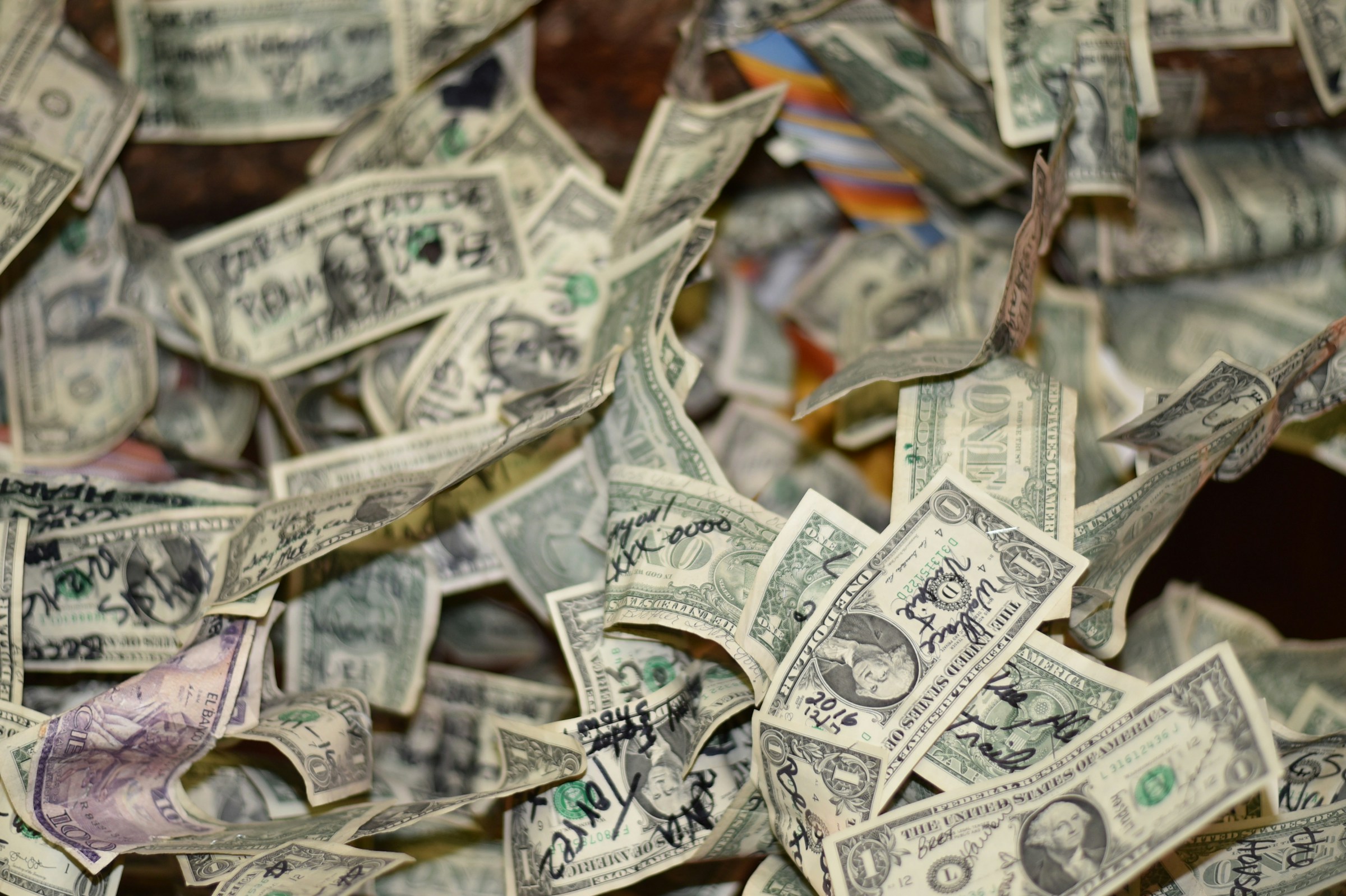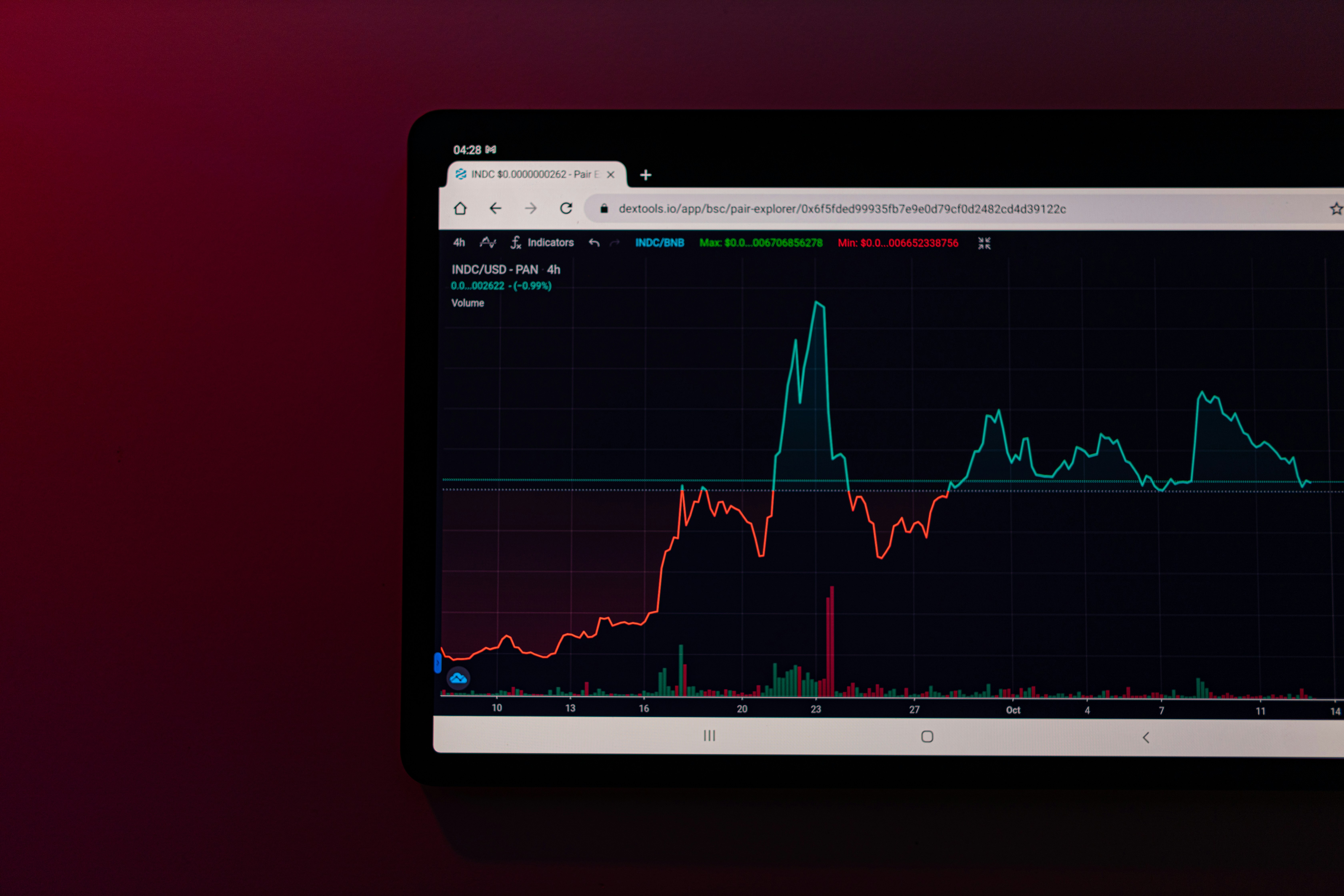How to Make Money on Forex (15+ Tips)
Learn how to make money on Forex with 15+ smart tips to boost profits and avoid beginner mistakes—simple, practical, and proven.

Navigating the world of forex trading can be like steering a ship through unpredictable seas. The allure of profit is undeniable, yet the risks are real. You're not alone if you’ve wondered how to make money on forex and maximize your trading potential.
This guide will help you through the complexities and show you how strategies like trading futures options can significantly contribute to your success.
Aqua Funded’s funded trading program is a game-changing resource. It can help you leverage your capital and sharpen your skills, transforming potential into tangible results.
Is Forex trading Profitable?

Short-Term Profits vs. Long-Term Challenges
Forex trading can indeed be profitable, especially in the short term. Many traders find success over days or weeks. Yet sustaining those profits over several years is a different story. It often requires a hefty capital reserve and a robust system for managing risk. Due to these challenges, retail traders often don't last more than a few months or years in this market.
The High-Stakes Nature of Forex
Trading in the forex market is inherently risky. While price changes are limited to fractions of a point, the outcome can be devastating. Making significant profits requires substantial investment, leading many traders to use high leverage. While leverage can boost earnings, it also magnifies losses, often resulting in exponential financial damage.
The Swiss Franc Shock: A Cautionary Tale
Consider the events of January 15, 2015, when the Swiss National Bank suddenly dropped its cap on the Swiss franc's value against the euro. The franc surged 41% in one day, causing substantial losses. Retail investors and large financial institutions alike felt the impact. Several brokerages became insolvent, and FXCM, a leading U.S. forex brokerage, nearly went bankrupt.
The Odds Against Retail Traders
Unexpected events like the Swiss franc surge aren't the only risks. The odds are generally stacked against retail traders who dream of getting rich in the forex market. Massive plays like George Soros's billion-dollar gain on the British pound are rare exceptions.
The Perils of Excessive Leverage
While currency markets can be volatile, severe swings like the Swiss franc's are uncommon. For example, a significant shift taking the euro from 1.20 to 1.10 against the U.S. dollar in a week is less than a 10% change. Stocks can easily swing 20% or more in a single day. The appeal of forex trading lies in the extreme leverage brokers offer, which can amplify gains and losses.
Consider a trader shorts $5,000 worth of euros against the dollar at 1.20 and covers at 1.10. They would earn $500, or 8.33%. Using 50:1 leverage permitted in the U.S., that profit jumps to $25,000, or 416.67%. However, if the trader had been long at 1.20 and exited at 1.10, the loss would also be $25,000. In some places, leverage can reach 200:1 or higher. Regulators are increasingly cracking down on excessive leverage, recognizing it as a significant risk to retail traders.
Related Reading
- Forex Trading Signals
- Forex Trading Sessions
- Forex Trading Software
- Best Forex Pairs to Trade
- Oanda vs Forex.com
- Best Forex Brokers Dubai
- Most Volatile Forex Pairs
- Best Forex Prop Firms
How to Make Money on Forex (8 Tips)
.jpeg)
1. Cracking the Forex Code
Trading in the forex market involves buying and selling currency pairs like EUR/USD or GBP/JPY. Your goal is to predict whether the base currency (the first one) will rise or fall against the quote currency (the second one). For instance, if you buy EUR/USD at 1.1000 and sell at 1.1050, you'll profit 50 pips. This requires understanding how to read and interpret the forex market.
2. Leveraging Your Forex Trades
Leverage can help you control prominent forex positions with little capital. For example, if a broker offers 1:100 leverage, you can maintain a $10,000 position with just $100. But be careful, as leverage can also magnify your losses. Use leverage wisely and avoid overleveraging your trades.
3. Analyzing the Forex Market
Forex traders use both technical and fundamental analysis to make informed trading decisions. Technical analysis involves studying charts, patterns, and indicators like RSI, MACD, and Bollinger Bands. In contrast, fundamental analysis looks at economic indicators like interest rates, GDP, and unemployment, as well as central bank policies and geopolitical factors. By mastering these two types of analysis, you'll be better equipped to identify entry and exit points for your trades.
4. Developing a Forex Trading Strategy
There are four main types of forex trading strategies: scalping, day trading, swing trading, and position trading. Each strategy has its own time commitment and risk tolerance. Scalping involves making many small trades in short timeframes for tiny profits. Day trading involves opening and closing trades within the same day. Swing trading involves holding trades for several days based on trend direction. Position trading involves long-term trading based on macroeconomic trends. Choose a strategy that suits your personality and lifestyle.
5. Managing Your Forex Risk
Risk management is crucial to successful forex trading. Use stop-loss and take-profit orders to automatically exit trades if the market moves against you or lock in profits at a predetermined level. Maintain a favorable risk-reward ratio, such as risking $1 to earn $2 or more. And don't overleverage your trades—start with low leverage and manage your position sizes carefully.
6. Choosing the Right Forex Broker
A good forex broker can make all the difference. Look for a broker regulated by a reputable authority like the FCA or ASIC, has transparent fees and spreads, offers an easy-to-use platform like MetaTrader 4 or 5, and provides a demo account to practice before investing real money.
7. Mastering Forex Trading Psychology
Successful forex trading is 80% mindset. Avoid making emotional decisions, stick to your trading plan, and accept losses as part of the game. Keep a trading journal to track your progress and learn from your mistakes.
8. Continuously Improving Your Forex Skills
The forex market constantly evolves, so you must be committed to lifelong learning. Take courses and webinars, and follow forex news and updates. Study successful traders' strategies and learn from your mistakes. The more you know, the more confident and booming you'll become as a forex trader.
9 Tips to Succeed in Forex Trading

1. Equip Aqua Funded for Your Trading
Maximize your trading potential with platforms like Aqua Funded. This resource allows you to leverage significant capital, up to $400K, without risking your money. Aqua Funded offers flexible trading conditions, including no time limits and attainable profit targets. You can even keep up to 100% of what you earn. With over 42,000 traders globally having collected upwards of $2.9 million in rewards, it’s a proven path to substantial profits. Consider instant funding options or tailor a challenge path to suit your skills, all backed by a rapid 48-hour payment guarantee.
2. Find Your Trading Groove
Before diving into forex, identify a trading style that matches your goals and temperament.
Consider these
- Day Trading: If you prefer closing positions before bedtime, this style might suit you. It involves buying and selling on the same day.
- Swing Trading: Willing to let trades breathe for a few days or weeks? Swing trading captures short to medium-term moves.
- Position Trading: For those patient enough to hold long-term, position trading focuses on gradual asset appreciation.
Each style has a unique risk profile. Find the one that aligns with your personality and comfort level.
3. Choose the Right Broker and Platform
Selecting a reliable broker is crucial. Research various brokers and their trading policies.
You’ll encounter different market types.
- OTC Market: Trades happen over a broker-dealer network.
- Spot Market: Financial instruments are traded for immediate delivery.
- Exchange Market: A centralized market for all trades.
Ensure your broker’s platform supports your analysis style. For instance, if you rely on Fibonacci numbers, confirm that the platform can draw those lines.
4. Craft a Solid Trading Methodology
Create a decision-making framework for entering and exiting trades.
You might focus on
- Economic fundamentals
- Major news events
- Technical analysis
Your methodology should be consistent yet flexible to adapt to market changes.
5. Sync Your Entry and Exit Points
Avoid confusion from conflicting signals across different timeframes. If a weekly chart suggests a buy, wait for the daily chart to confirm. Keep your timing aligned for better results.
6. Calculate Your Trading Expectancy
Expectancy measures the reliability of your trading system. Calculate it using:
Expectancy = (% Won Average Win) - (% Loss Average Loss)
This formula helps you understand how well your methodology is working. Adjust as needed to enhance profitability.
7. Master Risk Management
Risk is inherent in forex trading. Use only money you can afford to lose. Develop strategies to manage risk, focusing on long-term outcomes rather than short-term fluctuations.
- Risk-Reward Ratio: Determine how much you're willing to risk for potential gains. A ratio of 1:2 means risking $1 to earn $2.
- Stop-Loss Orders: These can minimize losses by exiting positions at specific exchange rates.
Understanding your risk tolerance and setting protective measures can keep you on track.
8. Conduct Weekend Analysis
Review weekly charts for patterns or news that might impact your trades when markets are closed. Analyze this information objectively to prepare for the upcoming trading week.
9. Keep a Printed Trading Journal
Document your trades with a chart and list all influencing factors, including emotional triggers. Note your entry and exit points. This practice helps you develop discipline and execute trades based on your system rather than emotions.
Related Reading
- Major Forex Pairs
- US Prop Firms
- Forex Trading for Dummies
- Forex Brokers with High Leverage
- Forex Trading Bots
- Forex Trading in Dubai
- Forex Trading Profit per Day
- Best Funded Account Forex
- What Is Margin in Forex Trading
- What Is a Pip in Forex Trading
- Forex Market Sentiment
- Forex MT4 Brokers
Benefits of Forex Trading

Equipping Forex Volatility
The forex market is a whirlwind of activity, with billions in trades happening every minute. This leads to significant price fluctuations, offering traders substantial profit opportunities. Predict the proper price movement, and you could see impressive returns. However, volatility can also mean rapid losses, so always use risk management tools to protect your investments.
Trade Forex Anytime
Forex trading operates 24 hours a day, five days a week, allowing you to trade at your convenience. This continuous trading is possible because forex deals happen over the counter, not through a central exchange. While this global access is beneficial, trading hours can shift in March, April, October, and November due to daylight saving changes in various countries.
Go Long or Short with CFDs
Trading forex using CFDs lets you speculate on rising and falling prices. You go long if you think a currency pair's price will increase. If you expect it to decrease, you go short. This flexibility means you can profit in any market condition. Remember, CFDs are leveraged products that can magnify gains and losses.
Reap the Benefits of High Liquidity
Forex is the most liquid market on the planet, with over $6 trillion traded daily. This high liquidity means trades can be executed quickly and easily, with tight spreads that require minimal price movement for profitability. Liquidity ensures you can enter and exit trades without much slippage, a crucial factor for active traders.
Amplify Your Trading Potential with Leverage
Leverage in forex trading allows you to control a prominent position with a relatively small capital. For instance, you might only need to add 0.5% of a trade's total value as a margin. While this can enhance profits, it can also increase losses, so managing your risk carefully is essential. Use tools like stop losses and price alerts to safeguard your capital.
Enjoy Tax Benefits with CFDs
In certain regions, CFDs offer tax advantages, such as exemption from stamp duty, though you may still owe capital gains tax on your profits. However, you can often offset losses against gains, making CFDs useful for hedging other investments.
Access a Variety of Currency Pairs
Forex trading gives you access to various currency pairs, allowing you to capitalize on global economic events. Whether you’re trading major or minor currencies, forex offers opportunities to profit from economic shifts and geopolitical developments.
Hedge Against Market Risk
Hedging in forex trading can reduce the risk of adverse price movements. You can mitigate potential losses by strategically opening positions on correlated currency pairs. For example, if you’re short on EUR/USD, going long on GBP/USD might offset some of the risk. You can also use forex to hedge against other markets, like commodities.
Looking to enhance your trading success? AquaFunded’s funded trading program lets you trade with accounts up to $400K without risking your capital. With flexible trading conditions and a generous profit split, you can maximize your earnings while minimizing risk.
Join Our Funded Trading Program Today - Trade with our Capital and Keep up to 100% of the Profit.

Consider trading futures options with zero risk to your capital. AquaFunded offers accounts up to $400,000 with the industry's most flexible trading conditions. There's no time pressure, accessible profit targets, and a profit split of up to 100%. Over 42,000 traders worldwide have already collected over $2.9 million in rewards. With a 48-hour payment guarantee, you can start trading today through instant funding or customizable challenge paths. Enjoy the freedom to trade on your terms and keep all your profits.
Related Reading
- Best Laptop for Trading Forex
- Best AI for Forex Trading
- Best Leverage for Forex
- Prop Trading Salary
- Instant Funding Forex Prop Firms
- List of Forex Prop Firms
- Top Forex Traders in the World
- Best Forex Broker for Small Accounts



